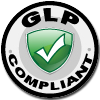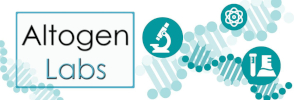Pharmacology and Toxicology Testing: IC50 for Tumor Cell Lines
Half maximal inhibitory concentration, or IC50, is a measurement representing the halfway point in which a compound of interest produces complete inhibition of a biological or biochemical function. This information is derived based on pharmacological data in reference to a dose-response curve. As the dosage of an inhibitory compound is increased, the biological function it affects decreases, and the point at which the concentration of the inhibitor has suppressed 50% of the biological activity is referred to as the IC50. Term IC50 is most often used as a measurement of antagonist, or inhibitory drug potency, as well as a quantification of the toxicological effects of inhibitory compounds.
During the development of Investigational New Drug (IND) applications, in vitro and in vivo toxicology testing studies are important to determine the threshold of inhibition of biological functions and effects of the compound on metabolism. In an effort to evaluate new pharmaceutical drugs and therapeutic treatments, cancer cell lines are used as in vitro models to screen the candidate drugs. Altogen Labs maintains a large library of cell lines that can be used for in vitro IC50 studies (see Table 1 below for some selected examples) and has the capacity to utilize client-provided cell lines as well.
Download Altogen Labs’ IC-50 Research Service PowerPoint Presentation: [Download ![]() ]
]
Get Instant Quote for
Pharmacology & Toxicology Testing:
IC50 for Tumor Cell Lines
Table 1. Selected cancer cell lines available at Altogen Labs for in vitro IC50 testing:
Breast Adenocarcinoma
Burkitt’s Lymphoma
Colon Carcinoma
Lung Adenocarcinoma
Leukemia
Lewis Lung Carcinoma
Kidney
Melanoma
Neuroblastoma
Osteosarcoma
Ovarian Adenocarcinoma
Pancreatic Carcinoma
Prostate Carcinoma
Rhabdomyosarcoma
SKBR3 (HTB30), MDA-MB (HTB26), MCF7 (HTB22)
Daudi (CCL-213), Raji (CCL-86), Ramos (CRL-1596)
Caco2 (HTB37), LS174T (CL188), SW480 (CCL228)
NCI-H460 (HTB-177), NCI-H23 (CRL-5800)
K-562 (CCL-243), CCRF-CEM (CCL-119)
Calu-3 (HTB-55), Calu-6 (HTB-56), A549 (CCL-185)
MDCK (CCL34), Cos7 (CRL1651)
J774A.1 (TIB-67), SK-MEL-28 (HTB-72)
SK-N-SH (HTB-11), Neuro-2a (CCL-131)
MG-63 (CRL-1427), SK-OV-3 (HTB-77)
Beta-TC-6 (CRL-11506), CHO-K1 (CRL-9618)
Capan-1 (HTB-79), MIA PaCa-2 (CRL-1420)
LNCaP (CRL-1740), DU145 (HTB-81)
Detroit 551 (CCL-110)
At Altogen Labs, we recognize that providing fast delivery of products and services is critical to expediting research. We are committed to meeting our clients’ timely needs while maintaining high quality and integrity. All of our services undergo rigorous QC procedures.
Download Altogen Labs In Vivo Toxicology Services PowerPoint Presentation: [PPT]
Once we know the details of your project, we can provide you an immediate price quote (contact us via e-mail at info@altogenlabs.com or call Altogen Labs at 512-433-6177). Please note that experimental details will help us to provide an accurate quote and timeline estimate.
Get Instant Quote for
Pharmacology & Toxicology Testing:
IC50 for Tumor Cell Lines

Other cancer cell lines available at Altogen Labs for IC-50 study:
A375 Cells (CRL-1619)
A431 (Epidermoid Carcinoma)
A549 (Lung Carcinoma, CCL-185)
AGS (Gastric Adenocarcinoma)
ARPE-19 (Retinal Pigment Epithelium)
ASMC (Aortic Smooth Muscle Cells)
AsPC-1 (Pancreatic Beta Cells)
bEnd-3 (Brain Endothelioma)
BJ (Skin Fibroblast Cells)
BxPC-3 (Pancreatic Cancer Cells)
C2C12 (Mouse Myoblast Cells)
C6 (Glioma Cells, CCL-107)
Caco-2 (Colon Carcinoma Cells)
Caki-1 (Kidney Epithelial Cells)
Calu-3 (Lung Carcinoma, HTB-55)
Calu-6 (Lung Carcinoma, HTB-56)
Capan-1 (Pancreatic Carcinoma)
CFPEo (HTRpC) (Trachea Epithelium)
Chromaffin (Chromaffin Cells)
CLBPEC (Neuroblastoma Cells)
COLO205 (Colon Carcinoma)
COS-7 (Kidney Cells, CRL-1651)
CT26.WT (Colon Carcinoma)
DI-TNC1 (Rat Brain Astrocytes)
DLD-1 (Colon Cancer, CCL-221)
DU145 (Prostate Carcinoma Cells)
Fibroblast (Fibroblast Cells)
HCAEC (Coronary Artery Endothelial)
HCC1937 (Breast Carcinoma)
HCN-1A (Brain Neuronal Cells)
HCT-116 (Colon Carcinoma)
Hepa 1-6 (Hepatoma Cells)
HepG2 (Hepatocellular Carcinoma)
HT-1080 (Fibrosarcoma Cells)
HT-29 (Colorectal Adenocarcinoma)
HUH-7 (Liver Cancer Cells)
LNCAP (Prostate Carcinoma)
LS-174T (Colon Adenocarcinoma)
MCF-7 (Breast Cancer, HTB-22)
MDA-MB (Breast Adenocarcinoma)
MDCK (Kidney Cells, CCL-34)
MEF (Mouse Fibroblast Cells)
MIA PaCa-2 (Pancreatic Carcinoma)
MRC5 (Diploid Fibroblast Cells)
NCI-H1299 (Lung Adenocarcinoma)
NCI-H1975 (Lung Carcinoma)
NCI-H358 (Bronchioalveolar Cells)
NCI-H460 (Lung Carcinoma)
NCI-N87 (Gastric Carc. CRL-5822)
Neuro-2a (Neuroblastoma, CCL-131)
NIH3T3 (Swiss Mouse Fibroblasts)
PANC1 (Non-endocrine Pancreatic Cn)
PC-12 (Rat Pheochromocytoma Cells)
PC-3 (Prostate Cancer Cells)
SK-BR3 (Breast Adenocarcinoma)
SK-MEL-28 (Melanoma Cells, HTB72)
SKNAS (Neuroblastoma Cells)
SK-N-MC (Neuroblastoma Cells)
SK-N-SH (Neuroblastoma, HTB-11)
SK-OV-3 (Human Osteosarcoma)
SW480 (Colon Carcinoma, CCL228)
U87 (Glioblastoma Cells)
Get Instant Quote for
Pharmacology & Toxicology Testing:
IC50 for Tumor Cell Lines
